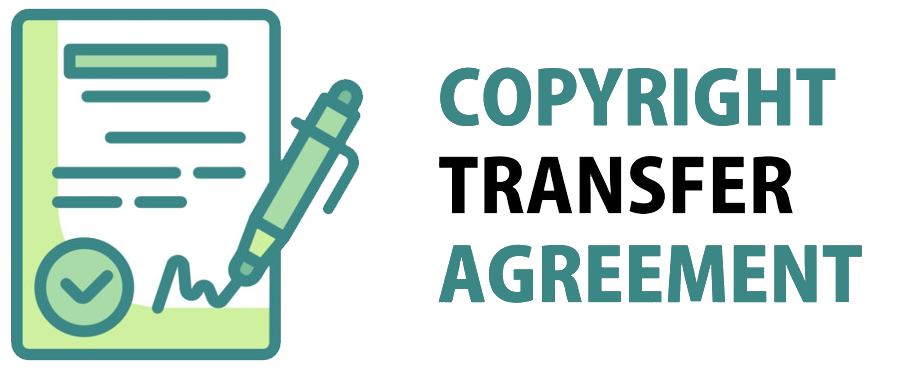Pengembangan Model Kriteria Penilaian Manajemen Risiko Halal Supply Chain Daging pada Bagian Downstream di Indonesia
Abstract
Daging termasuk salah satu produk yang didinginkan (cold chain) sehingga lebih sensitif terhadap kontaminasi dengan bakteri dan non-halal. Bagian downstream pada supply chain daging di Indonesia terdiri dari logistik, wholesaler, dan food services. Penelitian ini bertujuan menghasilkan pengembangan model kriteria penilaian halal supply chain daging di bagian downstream Indonesia. Kurangnya model kriteria penilaian pada industri makanan halal menyebabkan masih terdapat kemungkinan kontaminasi dengan non-halal sehingga dapat meningkatkan risiko integritas halal. Penelitian ini memiliki tiga tahap yaitu identifikasi risiko halal suppy chain daging berdasarkan literatur dan validasi oleh ahli, prioritas risiko menggunakan metode DANP, serta pengembangan model kriteria penilaian halal supply chain daging berdasarkan prioritas risiko dan validasi oleh ahli. Temuan penelitian menunjukkan 44 kriteria penilaian halal supply chain daging pada downstream di Indonesia. Aktor logistik dan wholesaler merupakan penambahan aktor yang dapat digunakan sebagai kriteria tambahan. Kriteria penilaian ini dapat digunakan oleh pembuat kebijakan setiap aktor untuk menjaga status halal.
Keywords
Full Text:
PDFReferences
Ab Talib, M. S. (2017). Motivations and benefits of halal food safety certification. Journal of Islamic Marketing, 8(4), 605–624.
Ab Talib, M. S., Ai Chin, T., & Fischer, J. (2017). Linking Halal food certification and business performance. British Food Journal, 119(7), 1606–1618.
Akbarizan., Lestari F., Hertina., Zulkifli., Murhayati, S., and Abror, M. (2018). Bisnis Produk Halal: Analisis Implementasi Rantai Pasok Halal di Australia. Depok Sleman, Yogyakarta: Kalimedia.
Ali, M. H., Tan, K. H., Pawar, K., & Makhbul, Z. M. (2014). Extenuating food integrity risk through supply chain integration: The case of halal food. Industrial Engineering and Management Systems, 13(2), 154–162.
Ali, M. H., Tan, K. H., & Ismail, M. D. (2017). A supply chain integrity framework for halal food. British Food Journal, 119(1), 20–38.
Arif, S., & Ahmad, R. (2011). Food quality standards in developing quality human capital: An Islamic perspective. African Journal of Business Management, 5(31), 12242–12248.
Bell, Joan Manners. (2014). Supply Chain Risk: Understanding Emerging Threats to Global Supply Chains (2nd. ed). London: Kogan Page.
Deputi Ekonomi Kementerian Perencanaan Pembangunan Nasional Indonesia. (2019). Indonesia Islamic Economic Masterplan 2019-2024. Kementerian Perencanaan Pembangunan Nasional Indonesia.
Fatwa LPPOM MUI Pusat. (2019). Daftar Belanja Produk Halal Acuan Sertifikasi Halal HAS 23000. LPPOM MUI.
Khan, M. I., Haleem, A., & Khan, S. (2018). Defining Halal Supply Chain Management. Supply Chain Forum, 19(2), 122–131.
Khan, S., Khan, M. I., Haleem, A., & Jami, A. R. (2019). Prioritising the risks in Halal food supply chain: an MCDM approach. Journal of Islamic Marketing.
Khan, S., Maqbool, A., Haleem, A., & Khan, M. I. (2020). Analyzing critical success factors for a successful transition towards circular economy through DANP approach. Management of Environmental Quality: An International Journal, 31(3), 505–529
Latif, K., Rehman, N., Nazri, M., Mohezar, S., Ismail, M. N., & Nor, M. R. M. (2017). Halal Supply Chain: A Business Strategy for Societal Value Chain. LAP Lambert Academic Publishing.
Liou, J. J. H., Tzeng, G. H., & Chang, H. C. (2007). Airline safety measurement using a hybrid model. Journal of Air Transport Management, 13(4), 243–249.
Muna, N., & Sutopo, W. (2018). Perkembangan Penelitian Halal Food Supply Chain: Studi Kasus Database Scopus. Prosiding SNST Ke-9, 131–139.
Nastasijević, I., Lakićević, B., & Petrović, Z. (2017). Cold chain management in meat storage, distribution and retail: A review. IOP Conference Series: Earth and Environmental Science, 85(1).
OECD-FAO. 2019. OECD-FAO agricultural outlook 2019-2028. OECD Publishing, Paris/Food and Agriculture Organization of the United Nations, Rome.
Reuters, T. (2016). State of the Global Islamic Economy Report 2016/2017. Dubai International Financial Centre, 214.
Riaz, Mian N. and Chaudry, M. M. (2019). Handbook of halal food production. Taylor & Francis Group, LLC.
Rishelin, N., & Ardi, R. (2020). Prioritizing risks of halal meat supply chain in Indonesian downstream sector using DEMATEL-based ANP. In 2020 IEEE International Conference on Industrial Engineering and Engineering Management, IEEM 2020 (pp. 711-715). [9309875] (IEEE International Conference on Industrial Engineering and Engineering Management; Vol. 2020-December). IEEE Computer Society
Rishelin, N., & Ardi, R. (2020). Halal Supply Chain Risk in Indonesian Downstream Sector. In Asia Pacific Conference on Research in Industrial and Systems Engineering, APCORISE 2020 – Proceedings, 266-271. (ACM International Conference Proceeding Series). Association for Computing Machinery.
Soon, J. M., Chandia, M., & Regenstein, J. Mac. (2017). Halal integrity in the food supply chain. British Food Journal, 119(1), 39–51.
Supian, K. (2018). Cross-contamination in processing, packaging, storage, and transport in halal supply chain. Preparation and Processing of Religious and Cultural Foods, 309–321.
Tieman, M. (2011). The application of Halal in supply chain management: In-depth interviews. Journal of Islamic Marketing, 2(2), 186–195.
Tieman, M., Vorst, J. G. A. J. Van Der, & Ghazali, M. C. (2012). Principles in halal supply chain management. Journal of Islamic Marketing, 3(3), 217–243.
Tieman, M. (2017). Halal risk management: combining robustness and resilience. Journal of Islamic Marketing, 8(3), 461–475.
Vanany, I., Maarif, G. A., & Soon, J. M. (2019). Application of multi-based quality function deployment (QFD) model to improve halal meat industry. Journal of Islamic Marketing, 10(1), 97–124.
Wahyuni, H., Vanany, I., & Ciptomulyono, U. (2019). Food Safety and Halal Food in the Supply Chain : Review and Bibliometric Analysis. Journal of Industrial Engineering and Management, 12(2), 373–391.
DOI: http://dx.doi.org/10.22441/pasti.2023.v17i1.012
Refbacks
- There are currently no refbacks.
Jurnal PASTI (Penelitian dan Aplikasi Sistem dan Teknik Industri)
Teknik Industri, Fakultas Teknik, Universitas Mercu Buana
Jl. Meruya Selatan, Kembangan, Jakarta Barat 11650
Tlp./Fax: +62215871335
p-ISSN: 2085-5869 / e-ISSN: 2598-4853
http://journal.mercubuana.ac.id/index.php/pasti/
This journal is indexed by:

This work is licensed under a Creative Commons Attribution-NonCommercial 4.0 International License.











